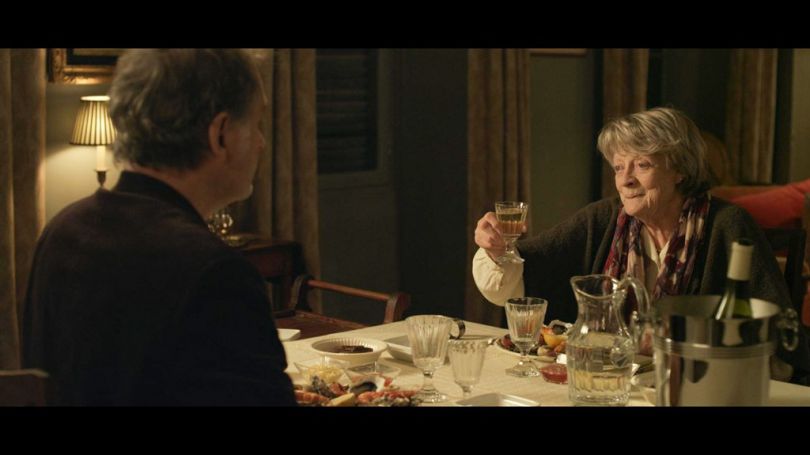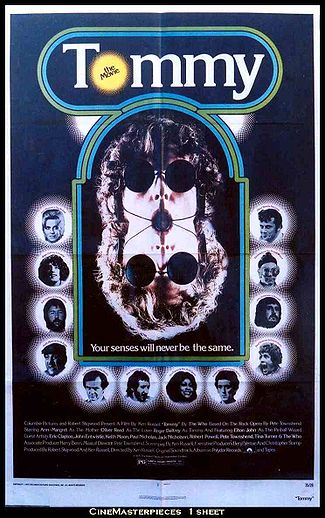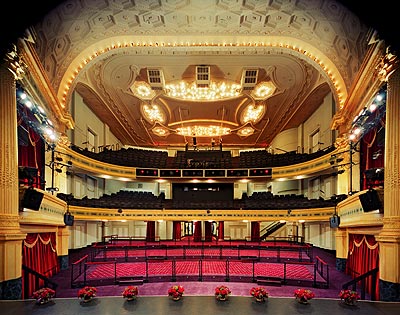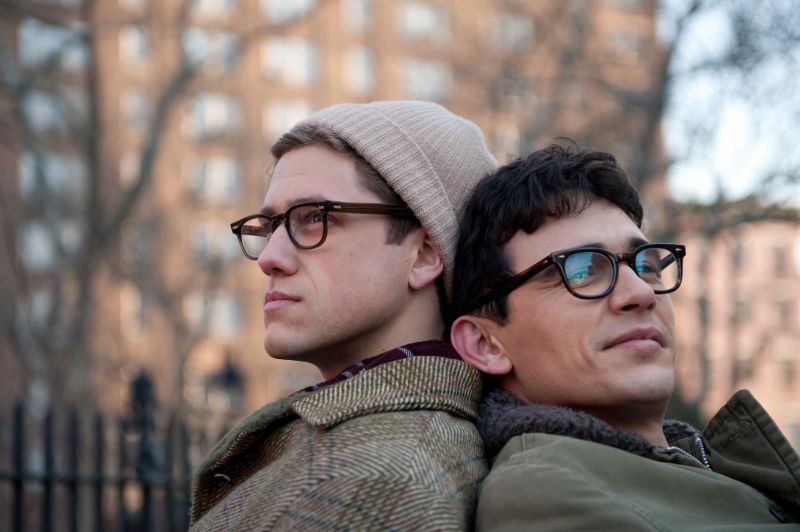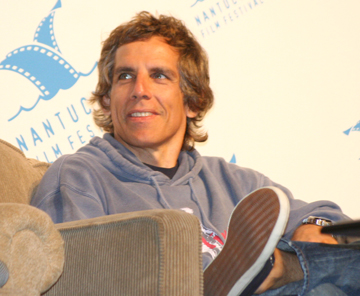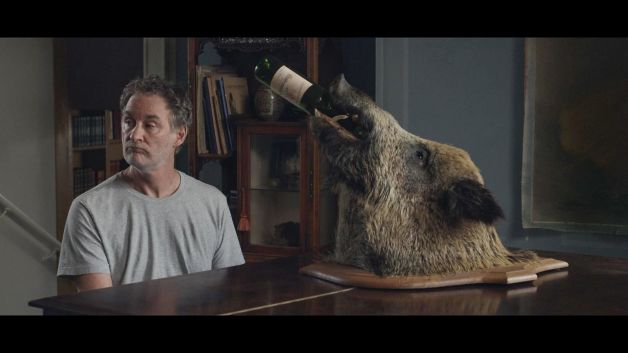
With 70 stage plays under his belt, Israel Horovitz is no stranger to the human condition. His debut effort in writing and directing a film, My Old Lady, shows that his dramatic flair isn't limited to theater. Adapted from his 2002 play of the same name, this three-character chamber piece unfolds in Paris, where many of Horovitz's plays have been produced and where he frequently cultivates his garden.
The paradise around which My Old Lady's action is centered is at once found and lost. Welcome to a prime swath of the Marais, where Mathias Gold (Kevin Kline), a sad sack New Yorker descends on the apartment he has inherited from his recently deceased but long-estranged father. Slouching towards 60, he has little to show for himself but a fondness for the bottle and a plan to sell the property. Mais alors...
Much to his chagrin, Mathias discovers that a 92-year-old Englishwoman, Mathilde Girard (Maggie Smith) shares the space with her irascible adult daughter, Chloé (Kristin Scott Thomas). Far from coming into quick money, Mathias stumbles upon a quirk of French real-estate law called a viager. Abiding this arrangement, the seller is permitted to stay put under his/her roof until death, all the while collecting monthly fees from the buyer. That's precisely the scenario that Gold senior plunged his son into, and now all Mathias can do is wait for Mathilde to die. In the event, he and his improbable new house mates uncover a deep cache of family secrets.
I recently sat down with Horovitz in New York for a brief chat about his movie debut.
Q: You once said in an interview, "I write because I don't know how to ask my questions any other way. What question were you asking with My Old Lady?
IH: I started out to write a love letter to Paris, and not surprisingly, midway through I had to say to myself, "Oh isn't it interesting where this is taking me? -- and then go with it." The question in this film is really: why do people do that to their children? In our lives we hear people who are 50, 60 years old talking about their parents, and a piece of your brain is saying, "Oh, get over it!" But another piece of your brain is saying, "But you can't get over it." There's such serious damage done...I always knew that (Mathias's) character knew (Chloé's) pain like nobody else would ever know her pain. And her character knew his pain like nobody else would ever know his pain. SPOILER ALERT: I think it's a relief and thrilling when these two people get together. It's more than just a love story, a romance. It's really profound when they get together and can lighten up a little bit.
Q: What prompted you to try your hand at filmmaking?
IH: I was at a point at my life when I wanted to do something that would really scare me because I'd done a lot of plays. So I thought that directing a film would really scare me. It was a matter of chosing one. I was in Moscow seeing the play at the Moscow Art Theater. As I don't speak a word of Russian, I was daydreaming. It was in that moment. Then I thought, "Boy, Paris is really missing from this three-character, one-room play...I thought it should be a movie. I wrote a script very quickly -- the first draft of it -- and it won a prize. Part of the prize was living in a 16th-century abbey outside of Paris, a prize from the Île-de-France Film Commission and the Writers Guild of America. The Île-de-France Film Commission took me location scouting every day for this first draft of the script.
Q: How did Kevin Kline and Maggie Smith become involved?
IH: I started to really see the film, and when I revised the script a little bit, my first thought was my "cousin" Kevin. Kevin was famously known as "Kevin Decline." He said yes right away, uncharacteristically, I'm told. And then I roped him into doing readings of the (script) at my house, which is the way I do it. I didn't do this movie because I wanted to build a big movie career. I did this movie because I wanted to make a beautiful movie, period. I knew I wanted to get great actors, that I was too old to do a movie that might come and go without anybody seeing it. I wanted it to be really significant. So Kevin was my only choice and Maggie was my only choice. And by god they said yes!
Q: What do you think drew Dame Smith to the project?
IH: When I met with Maggie the first time I went to London to have lunch with her after she said yes, she said, "You know I've had 25 scripts that have been sent to me, and do you want to know why I chose yours?" I thought, I'm not sure I want to know this. I said, "Okay, well tell me." She said, "Because I don't have to die at the end of your movie." I don't know if that's spoiling it for your readers...
Q: How was it to direct actors for the screen?
IH: I can say simply that directing Kevin and Maggie and Kristen Scott Thomas and Dominique Pinon, it's like telling the sun to give light. It kind of knows already that it's supposed to give light.
Q: You and Kevin Kline reportedly spent many weeks exploring how to adapt the stage play for film. What was the biggest challenge?
IH: Stage plays describe and movies show. Thus a hugely emotional speech in a play that makes the audience cry can be reduced to a single tear in a screen-actor's eye. Ultimately, I had to lay out the story of the film as if there never was a stage play, and I built the film on those bare bones.
Q: What are some of the solutions that you feel work particularly well in the filmed version?
IH: Having Paris be a character in my film is an enormous and successful change. So too are all the new characters added to the three characters of the stage-play, and they are played by the brilliant Dominqie Pinon, Noemie Lvovsky and Stephane Freiss.
Q: As a first time film director, how involved were you in the editing process?
IH: I was there every day all day. It was endless. I was very involved. And I can tell you that Kevin Kline as an actor in particular gives you what you want as a director for the first take, and then shows you five other things that come into his mind. When (we were) editing, we could have done a straight-out comedy; we could have done a very dark drama. But he really understood the kind of thing that I love, which is comic and tragic -- like life -- in the same work.
Q: The French title, "Trés chére Mathilde," gets at Mathias's evolving perception of his expensive/dear tenant with a word trick that My Old Lady can't replicate. What does the title "My Old Lady" suggest that eludes "Trés chére Mathilde"?
IH: Not a lot of thought went into the title because "My Old Lady" was the original play title and the "My" of the title gives Mathias focus... It's his old lady. And of course, there was the sly nod to the 1950s, 1960's "my old lady" that is totally anti-PC in modern life. "Trés chére Mathilde" came to mind when searching for a French title because "Ma vielle dame" means nothing to a French audience, and the wordplay with "chére" was instantly obvious to me. Also, Line Renaud, the actress who played Mathilde, is a huge star in France and the actor who played Mathias was less known. So giving "possession" of the story to Mathilde was an okay idea.
Q: My Old Lady and Rats are two examples from your ouevre in which homes occupy the narrative foreground rather than serving as mere backdrops against which the drama unfolds. What compels you about houses and apartments?
IH: I've written more than 70 produced stage plays. Those two happen to be about territory.
Q: Did you have a personal experience with the viager system in France? If so, did your own view of its merits also evolve, as was the case with Mathias?
IH: When I first encountered agencies selling viager apartments, I was a bit shocked, thinking that it was a barbaric system --- betting on longevity. But after some time, I realized that an older person who was childless, or had kids who didn't need the house/apartment, whatever, could get some cash and a monthly income for the rest of their lives.
